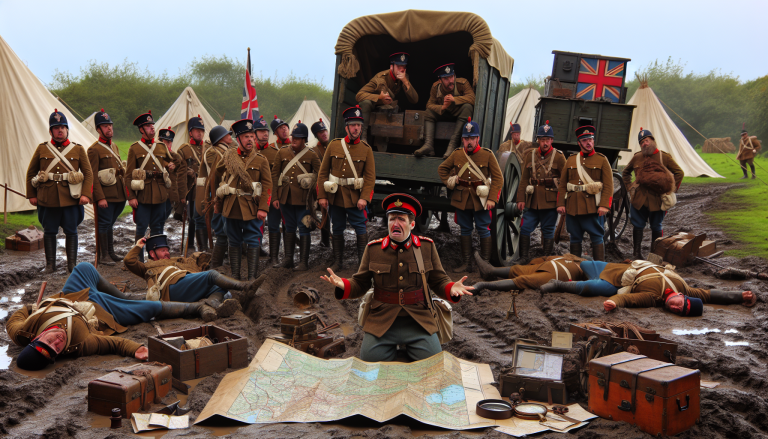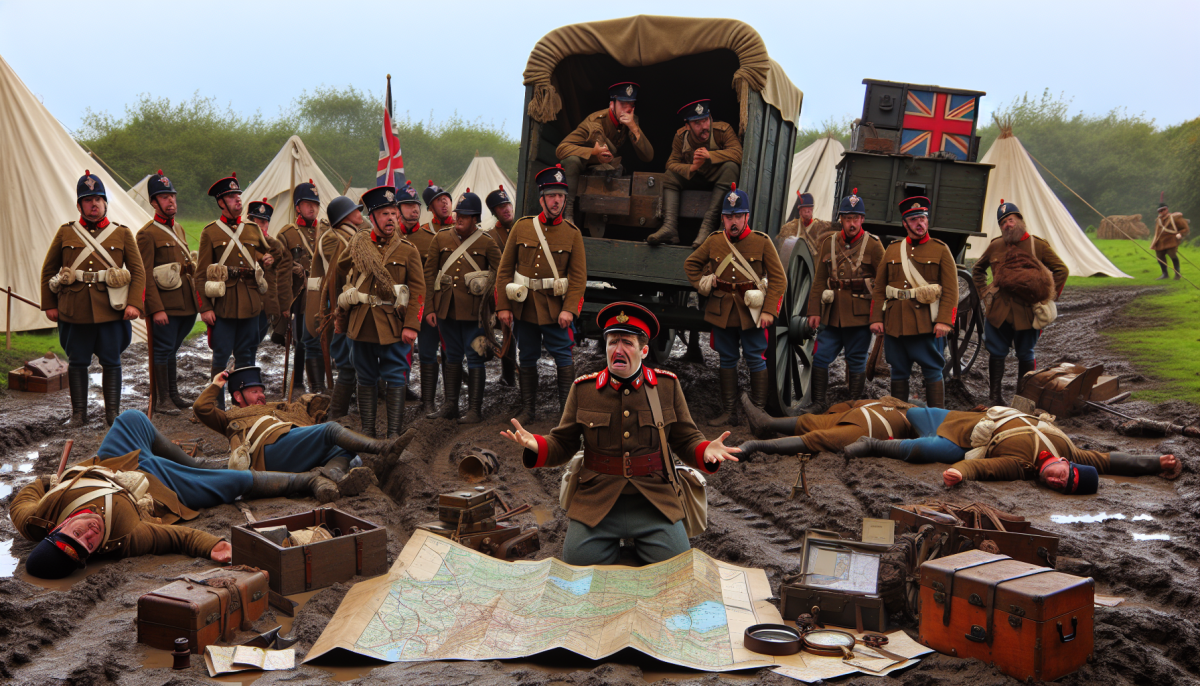Beating a Dead Horse: The Utterly Absurd Crimean War Supply Saga
When Logistics Go Hilariously Wrong
History is replete with moments of human folly, but few episodes capture the essence of “beating a dead horse” quite like the British Army’s spectacularly ridiculous logistical nightmare during the Crimean War of 1853-1856. Imagine an military campaign so profoundly incompetent that it would make modern bureaucrats weep with a mixture of embarrassment and professional admiration.
The Crimean War, ostensibly fought between the Russian Empire and an alliance of British, French, Ottoman, and Sardinian forces, quickly became a masterclass in how NOT to conduct a military campaign. At the heart of this comedic tragedy was a supply chain so broken it made a toddler’s game of “hot potato” look like a model of military precision.
The primary battlefield was the Crimean Peninsula, a windswept landscape that seemed determined to mock every single military strategy deployed against it. British soldiers, equipped with summer uniforms in a freezing landscape, found themselves battling not just Russian troops, but also the most fundamental enemy of all: spectacularly incompetent logistics.
The Horse That Wouldn’t Die

The phrase “beating a dead horse” might as well have been invented specifically for the British cavalry’s logistical efforts. Despite having hundreds of horses that were essentially walking (or more accurately, stumbling) corpses, the military leadership continued to requisition, transport, and attempt to use these animals as if they were in peak condition.
One particularly ludicrous example involved horses being shipped from England to the Crimean Peninsula in conditions so horrific that many died before even reaching the battlefield. But did this stop the bureaucratic machine? Of course not! They continued shipping horses, replacing dead ones with more horses that would inevitably suffer the same fate.
British military historian Trevor Royle noted, “The supply system was so monumentally inefficient that it seemed designed by someone who had a personal vendetta against the concept of military effectiveness.”
The British Army’s persistent efforts to maintain this equine carousel became a perfect metaphor for futile effort. They were quite literally beating dead horses – and paying astronomical sums to do so. The cost of transporting these unfortunate animals often exceeded their actual value, creating a logistical absurdity that would be comical if it weren’t so tragic.
Bureaucratic Brilliance in Action
What made this situation even more hilarious was the absolute commitment of military bureaucrats to their fundamentally broken system. Requisition forms would be meticulously filled out for horses that were little more than glue-factory candidates. Quartermasters would solemnly record the “arrival” of horses that were, in reality, nothing more than skeletal remains.
The military’s approach perfectly embodied the idiom “beating a dead horse” – continuing an activity that has no prospect of success. They were investing tremendous resources into a strategy that was not just failing, but catastrophically so.
Military communications during this period read like avant-garde comedy scripts. Requests for “robust equine replacements” would be sent while attached to reports detailing the mass death of previous horse shipments. It was bureaucratic theater of the most absurd kind.
The Human Cost of Futility
While the horse saga might seem comically detached, it had very real human consequences. Soldiers suffered tremendously due to these logistical failures. Lack of proper supplies, warm clothing, and functional transportation meant that more British troops died from disease and exposure than from actual combat.
The futile horse-shipping efforts became symbolic of a broader military incompetence that would later spark significant reforms in British military logistics. Sometimes, it seems, you need to beat a spectacularly dead horse to realize how broken your system truly is.
Legendary nurse Florence Nightingale, who witnessed these events firsthand, remarked with her characteristic blend of compassion and sardonic wit, “The British Army kills more men in peace than in war.”
A Lesson in Futility
The Crimean War’s horse saga serves as a timeless reminder that persistence without wisdom is just elaborate stupidity. Continuing an effort that has zero chance of success isn’t determination – it’s delusion.
In modern parlance, “beating a dead horse” has become a universal idiom representing wasted effort. But few historical examples capture its essence as perfectly as the British Army’s Crimean horse transport program – a testament to human beings’ remarkable capacity for continuing spectacularly unsuccessful endeavors with unwavering commitment.
The next time someone tells you to stop beating a dead horse, just smile and think of those poor, unfortunate horses of the Crimean War – silent witnesses to one of history’s most monumentally futile efforts.
